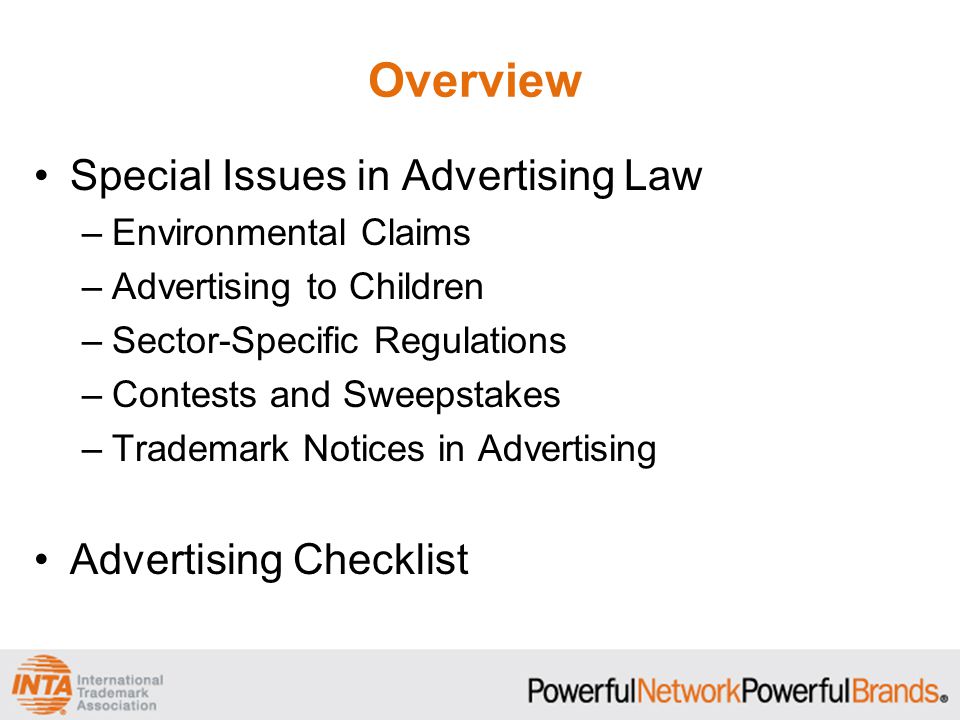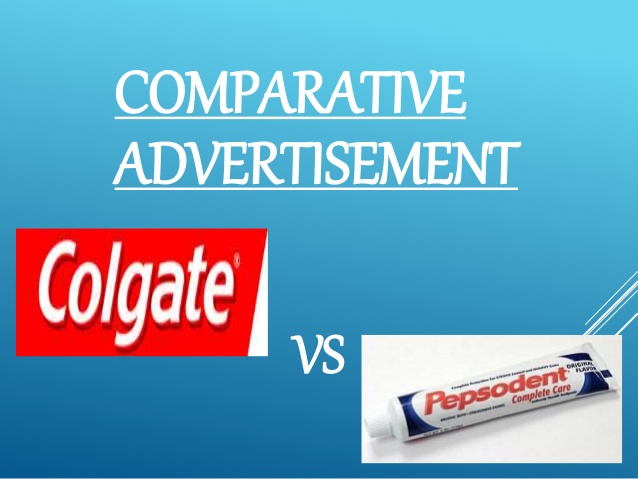Executive Summary
Advertisement laws dictate the behaviors and practices of local and international companies. Kaychian & Brothers is a company planning to expand its business operations by targeting new customers in Norway, Saudi Arabia, and China. The three countries present unique policies and laws this company needs to take seriously. While the identified countries have similar guidelines aimed at promoting ethical and competitive advertising strategies, there are unique differences informed by the established cultural and ethical values, including existing advertising laws, business regulations, people’s behaviors, and consumer expectations.
The leaders at this company will have to consider these issues and make informed decisions in order to identify the right country to target. This discussion identifies the differences in the established laws, cultural attributes, and policies capable of explaining why Kaychian & Brothers should take the issue of comparative advertising seriously and follow the established guidelines in every country.
Introduction
Advertisement is an evidence-based strategy capable of attracting attention of possible buyers in an attempt to maximize sales. Norway, China, and Saudi Arabia apply diverse laws and regulations to influence the way companies to pursue this process. Comparative advertising remains a critical practice capable of triggering legal challenges or improving business profitability. Kaychian & Brothers is a small company planning to modify its marketing strategy by investing in another different country to maximize profitability and meet the needs of additional customers. Kaychian & Brothers has decided to revolutionize its advertising procedures in Norway, China, and Saudi Arabia. A detailed report detailing comparative advertising laws, cultural issues, and disciplinary measures will guide the managers and decision-makers to identify possible challenges and strategies.
Comparative Advertising: Laws and Regulations
Comparative Advertising
Successful firms focus on evidence-based strategies to overcome this challenge and increase their profits. Comparative advertising has emerged as a superior model whereby businesses compare their products against those of the existing rivals (Bernstein and Keller, 2019).
The ultimate goal behind this practice is to showcase the superiorities and benefits of the targeted product to the consumer. Buyers need to spot the outstanding features and make the necessary decision (Schleimer, 2018). Such an advertising model is associated with specific drawbacks, including legal obstacles, possible disciplinary measures, and customers’ ability to make rational decisions (Abamu, 2019). Governments implement consumer protection and fair competition laws to dictate the way firms pursue such practices. The management at Kaychian & Brothers will have to consider the effectiveness of such legal provisions in the selected nations and make desirable decisions.
The Norwegian Marketing Control Act of 2009 is the law regulating all marketing practices, including pricing and advertising procedures. While this law allows companies to engage in comparative advertising, it prohibits all forms of misleading acts or the provision of misleading information to customers (Grozdanovska, Jankulovski and Bojkovska, 2017). Section 9 of this Act identifies aggressive marketing practices as inappropriate and unacceptable. They should not coerce or reduce the ability of the buyer to make an independent decision (Bernstein and Keller, 2019). Trademarks are critical in accordance with Norwegian marketing law.
Companies should respect registered names and ensure any form of advertising is pursued effectively (Sanyal and Hisam, 2018). Marketers who fail to follow these guidelines will be fined or imprisoned for a period of 3 years (The marketing control Act, 2019). This outcome occurs when a specific company engages in unfair advertising processes harming the reputation or image of another firm. The presence of the Norwegian Marketing Control Act is intended to minimize cases of infringement and ensure businesses promote desirable practices.
Additionally, this culture has ethical and cultural attributes that inform the way firms pursue their business aims. Individuals are encouraged to remain ethical and focus on the best strategies to promote fairness (Scott, 2016). Companies’ actions, goals, and practices need to be culturally acceptable in every society. People believe sustainable advertising strategies are effective and show a sign of respect to the possible customers (Schotthöfer, 2017).
Organizations that ignore this kind of cultural and ethical knowledge will be unable to achieve their aims (Rowlands and Smith, 2016). Individuals will be unwilling to be associated with their brands. The Norwegian Competition Authority (NCA) and the Consumer Authority (CA) are the agencies focusing on advertising practices and the needs of the consumers in this country. These bodies provide incentives for pursuing sustainable business practices and support the imposition of disciplinary measures.
Companies planning to invest in the Peoples’s Republic of China need to consider the existing policies and regulations. The primary document detailing the expected advertising behavior and conduct of companies in the Advertising Law of the People’s Republic of China of 2015. The main purpose is to protect the consumer and hold businesses accountable for their actions. The policy prohibits the provision of misleading, inaccurate, or wrong information to the customer (Patel and Cespedes, 2016).
The presented information should offer the right origin, function, price, usage, and ingredients for different products (Slávik, 2019). The Law also prohibits the use of superlative phrases in any advertisement: the best and the most (Rowlands and Smith, 2016). Companies failing to consider these requirements can face fines amounting to 20,000 Sterling pounds or more (Rowlands and Smith, 2016). The Law allows businesses to practice comparative advertising without using direct comparisons (see Figure 1). This analysis indicates that the other items should not have their names or brands indicated in the adverts. Such malpractice can affect the marketing process and result in discriminatory tendencies.

Advertisers do not need to copy the works of their immediate rivals or use them to develop new ones. When engaging in this form of practice, the Law encourages firms to avoid naming services or products associated with the existing competitors. Marketers who fail to follow these requirements will have chance of facing punitive measures (Wang et al., 2016). For example, their licenses may be revoked as one of the penalties for failing to follow the established Chinese advertising law. However, this form of punishment is possible when the breach occurs.
Fines of 21,000 to 105,000 Sterling pounds are common whenever there is a marketing offense (Rowlands and Smith, 2016). The primary regulatory body is the Department of Industry and Commerce. Xiaomi Incorporation attracted the attention of the authorities after being found using the above superlative phrases in some of its adverts (Bi India Bureau, 2015). This organization stood a chance of attracting the stipulated fine. Currently, the case is ongoing whereby the company might be fined up to 105 Sterling pounds.
From a cultural perspective, the Chinese focus on the teachings of the Buddha and Confucius to lead their lives. They avoid sin and pursue what will take them closer to nirvana. These foundations of culture and morality ensure customers remain loyal while at the same time expecting business organizations to pursue similar practices (Alsharif, 2019). Consequently, firms are required to engage in corporate social responsibility and promote superior practices resonating with the established cultural norms. Foreign companies planning to invest in China need to consider the mentioned Law.
In Saudi Arabia, businesses need to consider diverse regulations and traditions passed from one generation to the next. The established marketing laws dictate the way companies pursue their objectives and meet the needs of the public. Before the 1980s, adverts were not considered a major priority. These initiatives are usually conducted at a local or micro-scale (Alsharif, 2019). However, changes have emerged whereby advertisements have become powerful tools for communicating the intended message and information to different customers.
The presence of Islamic laws informs the manner in which adverts need to be designed and relayed to the members of the public. Occasionally, the Government will dictate the kind of message or content available in a given advertisement (Lindsay, 2016). This strategy is critical since it compels companies to comply with the outlined Islamic restrictions and guidelines. The process of assimilation becomes mandatory to record positive results (Alsharif, 2019). A major advertisement requirement is for women not to appear in logos. The established regulations and policies do not support the process of comparative advertising (Wilton, 2016). The main regulatory body in this area is the central government and it hires competent agents to monitor and censure advertisements.
The cultural and moral aspects associated with this country form the foundation of ethical advertising. Women are not featured in different advertisements across this country. Companies trying to ignore such a requirement will face the government’s wrath and find it hard to pursue their economic or business goals (Morrison, 2017). Businesses might be forced to stop operating in this country. The situation worsens when the government decides to revoke the licenses of organizations ignoring the established Islamic guidelines and principles (Alsharif, 2019).
The examples of Starbucks and IKEA reveal how companies need to behave and market their products in this country. For instance, one of IKEA’s advert with women as part of the catalog had to be edited to ensure they were not depicted in this country (Batocchio, Ghezzi and Rangone, 2016). Similarly, Starbucks’ inclusion of a mermaid in its logo attracted the attention of the government, therefore forcing the corporation to replace the signature with a crown (Figure 2).
These examples show conclusively cultural aspects should be taken seriously in this country. This recommendation will make it possible for many organizations to overcome emerging hurdles or challenges and eventually record positive gains (This is the Starbucks logo in Saudi Arabia, 2015). The consideration of the established guidelines is essential to avoid some of the potential challenges and obstacles capable of disorienting the level of business performance.

Recommendations
Governments implement powerful regulations for monitoring and guiding business advertising practices. These essential policies have the potential to protect the consumer and promote ethical and fair competition (Rezaee, 2017). The implemented principles and laws permit both local and foreign companies to engage in comparative advertising as a way of attracting customers and increasing their profits (Li, 2016). However, the Laws outlined above require companies to remain honest and focus on the demands of the customers. They should be involved in order to protect the buyers from erroneous information (Samiee and Chirapanda, 2019).
In Saudi Arabia and China, the established laws are aimed at monitoring the actions, advertising practices, and marketing strategies organizations implement (Maon and Sen, 2016). Such agencies are efficient in solving emerging disputes since they fine both individuals and companies for ignoring such provisions (Johnson et al., 2016). There are disciplinary mechanisms capable of resulting in the termination of some of the adverts if they do not follow the implemented guidelines.
Despite such legal procedures, the Chinese Government promotes certain practices capable of informing business decisions and initiatives. Citizens need to remain honest and be ready to help each other. These attributes are replicable in the field of marketing to ensure positive gains are recorded (Yi, Park and Kim, 2019). In Norway, western ethics remains a guiding principle of people’s culture. Businesses need to engage in corporate social responsibility (CSR) if they are to become more competitive (Feuroghne, 2017).
One way of achieving positive results is to promote comparative advertising without affecting the integrity of the rival brand (Mukhezakule and Tefera, 2019). In the case of these countries, companies should avoid mentioning names or services associated with their immediate competitors when pursuing this form of advertisement.
The situation in Saudi Arabia is different in comparison with China and Norway. This Kingdom focuses on Islamic Law as the origin of all ideas, including cultural practices and business strategies. Companies operating in this Country need to follow established guidelines (Yuliansyah, Gurd and Mohamed, 2017). Businesses should put the needs of customers first if they are to record positive gains and emerge profitable (Cader, 2015). Kaychian & Brothers will, therefore, have to consider all these attributes and examples to create the best adverts and identify evidence-based ways to inform more customers about the available products.
The management will introduce superior strategies and advertisements capable of taking this firm to the next level. These aspects will make it possible for Kaychian & Brothers to pursue a sustainable business model and record increased profits. Additionally, Kaychian & Brothers should also modify its marketing procedures if it is to achieve the intended business goals. The organization’s managers will also need to consider the cultural, religious, and traditional norms practiced in each of these nations (Browaeys and Price, 2015). Such professionals will implement a superior model for creating the best advertisements and following the established policies in accordance with the Law. The new model will add value to the business, attract more customers, and eventually maximize the level of profitability.
Conclusion
The above discussion has identified three countries with strict laws for marketing and advertising practices. For instance, the use of women in its adverts will be reconsidered for the Saudi Arabian market. Such malpractice can result in strained relationships between this firm and the government. Similarly, leaders need to avoid the use of the words “best” and “most” on their online platforms and adverts in the Chinese market. The identification of rival products in its adverts will remain illegal in Norway and China.
This information is essential since it examines the existing differences and opportunities in the selected countries and how they can influence business strategy. In conclusion, Kaychian & Brothers is capable of improving its strategy and profitability if it takes the above descriptions and Laws into consideration.
Reference List
Abamu, B.E. (2019) ‘Introducing investment promotion: a marketing approach to attracting foreign direct investment’, International Journal of Marketing Studies, 11(4), pp. 91-98. Web.
Alsharif, D.L. (2019) ‘Legal, decent, truthful: how ads must comply with the law’. Arab News. Web.
Batocchio, A., Ghezzi, A. and Rangone, A. (2016). ‘A method for evaluating business models implementation process’, Business Process Management in Journal, 22(4), pp. 712-735. Web.
Bernstein, D.H. and Keller, B.P. (2019) The law of advertising, marketing and promotions. New York: Law Journal Press.
Bi India Bureau (2015) ‘Xiaomi will now think twice before using superlative adjectives in China!’ Business Insider. Web.
Browaeys, M. and Price, R. (2015) Understanding cross-cultural management. 3rd edn. Harlow: Pearson Education.
Cader, A.A. (2015) ‘Islamic challenges to advertising: a Saudi Arabian perspective’, Journal of Islamic Marketing, 2(2), pp. 166-187. Web.
Feuroghne, D.K. (2017) Law & advertising: a guide to current legal issues. New York: Rowman & Littlefield Publishers.
Grozdanovska, V., Jankulovski, N. and Bojkovska, K. (2017) ‘International business and trade’, International Journal of Sciences: Basic and Applied Research, 31(3), pp. 105-114. Web.
Johnson, G., et al. (2016) Exploring strategy: text and cases. New York: Pearson Education.
Li, H. (2016) Advertising and consumer culture in China. New York: Wiley.
Lindsay, R. (2016) Ad law: the essential guide to advertising law and regulation. New York: Kogan Page.
Maon, F. and Sen, S. (2016) Sustainable value chain management: a research anthology. 2nd edn. New York: Routledge.
Morrison, J. (2017) The global business environment: challenges and responsibilities. 4th edn. London: Palgrave.
Mukhezakule, M. and Tefera, O. (2019) ‘The relationship between corporate strategy, strategic leadership and sustainable organisational performance: proposing a conceptual framework for the South African aviation industry’, African Journal of Hospitality, Tourism and Leisure, 8(3), pp. 1-19. Web.
Patel, B.N. and Cespedes, F.V. (2016) ‘Introduction to business strategy’, Journal of American College of Radiology, 13(6), pp. 747-749. Web.
Rezaee, Z. (2017) Business sustainability: performance, compliance, accountability and integrated reporting. New York: Taylor & Francis.
Rowlands, J. and Smith, D. (2016) ‘China: advertising in China’, Mondaq. Web.
Samiee, S. and Chirapanda, S. (2019) ‘International marketing strategy in emerging-market exporting firms’, Journal of International Marketing, 27(1), pp. 20-37. Web.
Sanyal, S. and Hisam, M. (2018) ‘The impact of teamwork on work performance of employees’, IOSR Journal of Business Management, 20(3), pp. 15-22. Web.
Schleimer, S. (2018) Accounting and financial analysis of UK supermarkets. Munich: GRIN Verlag.
Schotthöfer, P. (2017) International advertising law: problems, class, and commentary. Alphen aan den Rijn: Wolters Kluwer.
Scott, P. (2016) Accounting for business. Oxford: Oxford University Press.
Slávik, S. (2019) ‘The business model of start-up—structure and consequences’, Administrative Sciences, 9, pp. 69-91. Web.
The marketing control Act. (2019). Web.
Walker, D. (2018) ‘Comparative advertising: three dos and don’ts for a legal campaign’. Business Advice. Web.
Wang, H., et al. (2016) ‘Corporate social responsibility: an overview and new research directions’, Academy of Management Journal, 59(2), pp. 534-544. Web.
Wilton, N. (2016) An introduction to human resource management. New York: Sage.
Yi, H.K., Park, S. and Kim, J. (2019) ‘The effects of business strategy and inventory on the relationship between sales manipulation and future profitability’, Sustainability, 11(8), pp. 2377-2394. Web.
Yuliansyah, Y., Gurd, B. and Mohamed, F. (2017) ‘The significant of business strategy in improving organizational performance’, Humanomics, 33(10), pp. 56-74. Web.
This is the Starbucks logo in Saudi Arabia (2015). Web.
Appendices
Appendix 1: Issues in advertisement law

Appendix 2: Comparative advertising sample


